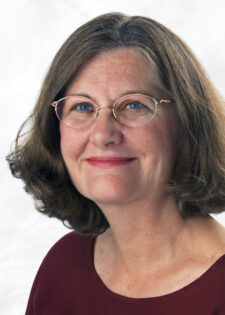Emerita Professor of Law
Christine Ver Ploeg was Professor of Law at William Mitchell College of Law from 1977 – 2015 and is currently Emerita Professor at Mitchell Hamline School of Law. She is continues to serve as an arbitrator and mediator and now also devotes much of her time as a volunteer and founding board member with a local philanthropy, Mano A Mano International Partners. She served as Special Assistant U.S. Attorney (criminal) in Washington, D.C., Trial Attorney, U.S. Department of Justice, Civil Rights Division, Washington, DC., and Commissioner of the St. Paul Human Rights Commission. She also served as a Board Member of the National Academy of Arbitrators Research and Education Foundation; National Academy of Arbitrators’ Amicus Brief Advisory Committee; Commissioner, Permanent Judicial Commission on the Presbytery; and Board Member of Mano A Mano.
“The exceptional diversity of our students and faculty is what makes Mitchell Hamline most special for me. It was a joy to lead classes in which students contribute so much from their rich work and life experiences.”
Education
B.A., 1971, University of Massachusetts
J.D., 1974, Drake University Law School
LL.M., 1977, Georgetown Law
Experience
Mitchell Hamline School of Law: emerita professor of law, 2015-.
William Mitchell College of Law: emerita professor of law, 2014-2015; professor of law, 1982-2013; associate professor of law, 1980-82; assistant professor of law, 1977-80.
Special assistant U.S. attorney (criminal), Washington, D.C., 1976.
Trial attorney, U.S. Department of Justice, Civil Rights Division, Washington, D.C., 1974-77.
Admitted: Iowa, 1974; Minnesota, 1982.
Leadership & Service
Commissioner: St. Paul Human Rights Commission, 1978-81; Neutral Representative: Minnesota Bureau of Mediation Services Advisory Board, 1993-98; Past Member: National Academy of Arbitrators Research , International, and Legal Affairs Committees; Board Member, National Academy of Arbitrators Research and Education Foundation; Member, National Academy of Arbitrators’ Amicus Brief Advisory Committee; Board Member, Mano A Mano (volunteer org. providing medical supplies to Bolivia); Commissioner, Permanent Judicial Commission on the Presbytery.
Research & Scholarship
The over 900,000 K-12 students who are enrolled in Minnesota’s 2,214 public schools are taught by 68,000 teachers, all of whom enjoy substantial employment protection under Minnesota’s Teacher Tenure Act. I am currently analyzing how the Act’s discharge for cause provisions have actually been implemented. In addition, I am developing materials for a course on the cross cultural aspects of dispute resolution.
I have been a frequent faculty member for a host of ADR CLE programs, including programs certified by the Minnesota Supreme Court to train persons as qualified neutrals for placement on court rosters pursuant to Rule 114, as well a frequent lecturer at national conferences sponsored by the Labor Arbitration Institute.
In the summer of 2002, I taught cross-cultural dispute resolution at National University of Ireland, Galway, in a program offered by the Irish Centre for Human Rights and the Consortium for Innovative Legal Education.
I have received two Faculty Fellowships to Pepperdine Law Center’s Straus Center for Dispute Resolution, one in January 1999 and another in January 2002. I was a Visiting Professor to the Commonwealth of the Northern Marianas Islands in spring 1993, presenting speeches and workshops on alternative dispute resolution to large and diverse groups of persons representing law, labor and management, education, government, social services, and business. This visit was sponsored by the Saipan Chamber of Commerce
Recent Activities
- Presides over labor arbitrations
- Works with a humanitarian organization, Mano A Mano International Partners, she helped launch in 1994. The group is a mostly volunteer NGO that serves South America’s 2nd poorest country, Bolivia. Using its own community-based model of operations, the group has provided air rescue services and built clinics, schools, agricultural projects, roads, reservoirs, and community bathrooms that now serve almost one million rural Bolivians.

